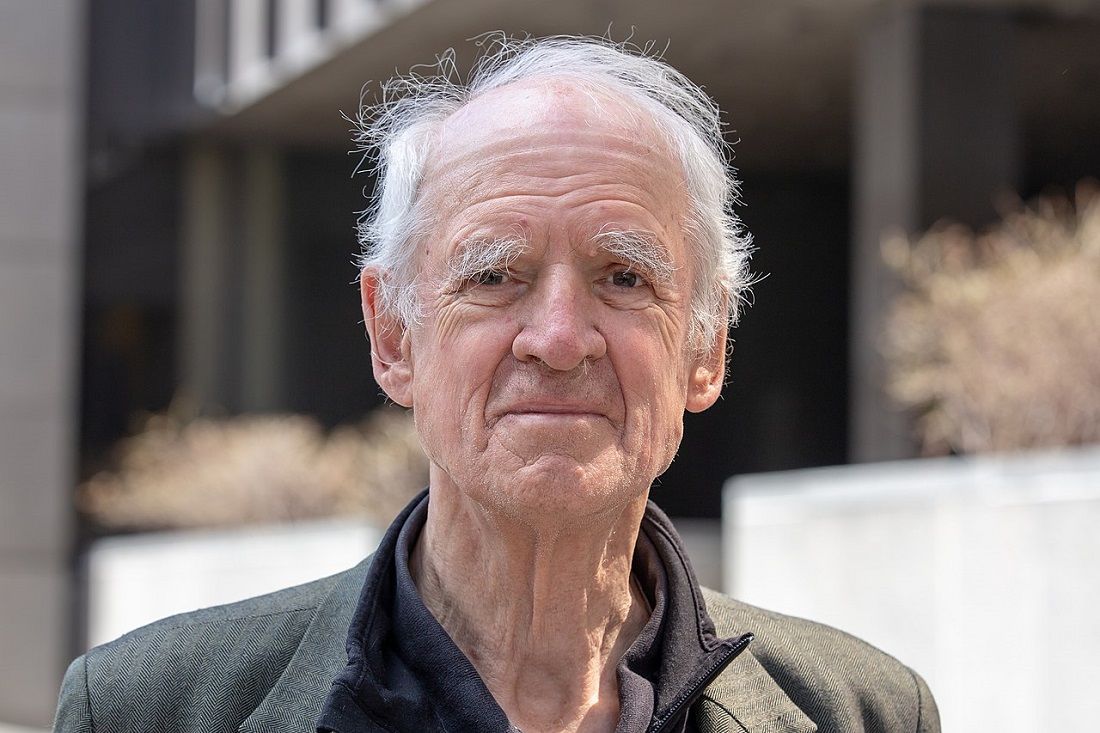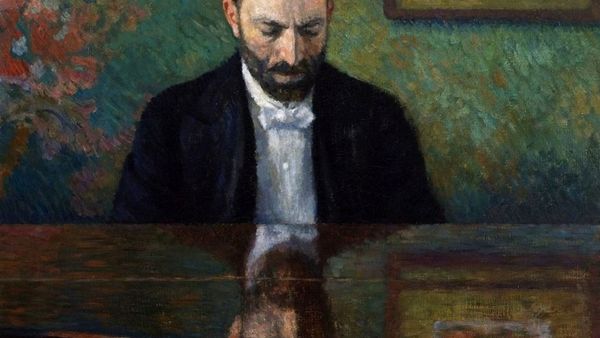It is not uncommon to wonder, and perhaps wise to do so, before embarking on a several thousand-page odyssey through his books: “Why Charles Taylor?” More precisely, why is there an attraction to Taylor felt by a goodly number of contemporary Catholic intellectuals? The Hegel book certainly provides a clue and perhaps more than a clue. But, for now, we will speak in broad strokes: just as modern Christian intellectuals found Hegel helpful for reconciling modern social and political culture with their Christian faith, so contemporary Catholics may find a similar comfort in Taylor. While Taylor’s work does not resolve all the tensions of being Catholic in the modern world, it does relieve many of them. Who, we might ask, could not use a bit of this relief from time to time?
Charles Taylor thus rows against the tide of apocalyptic Catholic theology that one finds in theologians from Benedict XVI to Johannes Baptist Metz. Other than this comfort in the zeitgeist, however, we might ask whether there are still more substantial reasons for why Taylor attracts Catholic intellectuals. Or, since this is not a survey of Catholic intellectuals and their preferences, we might put the question this way: Why would it seem to make sense for Catholic intellectuals to be smitten with Taylor’s work? I do not mean “make sense” in a psychological vein: i.e. Taylor makes us all feel more intellectual for having read his romp through the major writers and movements of Western intellectual history; Taylor makes insecure Catholic intellectuals feel like they have more solid ground than their opponents, etc. Rather, the question is more akin to something like, “What looks authentically Catholic in Taylor’s work such that it may have purchase on ecclesial thought?”
There are four main reasons for this attraction: his “Catholic” genealogy, his undoing of 17th century epistemological dominance, his arguments for strong goods or moral realism, and his rejection of the “subtraction story”[1] of modern secularism. These four reasons intertwine so thoroughly that they only work when considered together. Furthermore, it will become obvious how this strategy allows key goods to arise from the dead by virtue of his narrative of Western intellectual and cultural history.
I: Catholic Genealogy
Catholics are certainly not the only authors of major genealogies of modernity (see: Jeffrey Stout, Jonathan Schneewind, and John Millbank), but genealogy has become something of a preoccupation for Catholic intellectuals. Witness the massive works of Hans Urs von Balthasar, Cyril O’Regan, and Taylor himself. See also the somewhat more modest genealogies of Conor Cunningham, Michael Buckley, Louis Dupre, Jose Casanova and William Cavanaugh. One might include Brad Gregory here as well. Though Cavanaugh’s work on religious violence is perhaps the most modest of these, it grants an insight into the drive behind many if not all of the others. If it is true that victors get to write history, then it is also the case in the drama of the contemporary world that we live in a play written by Enlightenment and post-Enlightenment Protestant intellectual culture.
To write a genealogy is to uncover the hidden assumptions that stream forth from these varied tributaries forming the river of modernity and, furthermore, forming our very selves. As Nietzsche knew so well, genealogy is an exercise in self-understanding—whether for destructive or constructive purposes—the importance of which presumes the importance of history. Taylor’s narrations are meant to be both: destructive of 17th century assumptions about epistemology setting the parameters for ethical discourse and the coincident “subtraction story” regarding science and religion; constructive in seeking to restore discourse on strong goods to the center of ethical discourse. The latter, he thinks, depends upon the former.
Taylor’s restoration of “goods” language or moral realism to the center of ethical discourse does not mean anything like a renunciation of modern goods and loves. Nevertheless,
once uncovered or articulated, Taylor thinks, modern goods such as autonomy, equality, authenticity, scientific discovery, and self-expression may require more substantial phenomenological and ontological grounding than they receive in their native expressions. Perhaps as important to note, this fuller articulation will not leave our understanding of these goods unscathed, especially in and through their interrelation. Thus, articulation is essential to ethics. The overall sense of Taylor’s multiple narrations is one of cultural self-correction, but without clear closure (i.e., “end of history” pronouncements) or telos. A brief discussion of “autonomy” can give a sense of Taylor’s approach.
Taylor values what he sees as a movement away from external norms for human behavior, whether in the Platonic forms or a legislating God towards immanence and interiority. Sources of the Self tells the story of this development toward interiority. Autonomy is an element in this ongoing story, but not the only one and not the terminus. Indeed, for Taylor autonomy in its 18th century expressions yielded a kind of atomism, a view of the self denatured and uprooted from community, body, tradition, and language. All of these are covered by his term “excarnation.” Like John Courtney Murray, Taylor grasps the felt need for the re-inscription of limited government articulated by thinkers such as John Locke and a sense that morality appeals to our freedom and reason and not merely to obedience as in the thought of Immanuel Kant. Also like Murray, Taylor sees in 18th century liberalism a superficial account of human personhood. Yet, unlike Murray, this critique of 18th century atomism does not lead Taylor to recommend a return to natural law.
Instead, he seems to think that Romanticism issues the necessary corrective for the very privations discovered in rationalist discourse. To the extent that contemporary culture exalts uprooted individualism or autonomy, it elides the Romantic insight into the necessarily tradition formed and interpersonal shape of all our lives, acknowledged or not. Thus, whatever the good of autonomy will mean, it will require a better articulation than one finds immediately prior to the Romantic reaction. “Authenticity”—another modern good—demands at least this much. This articulation, in turn, will require a redefinition of the good of autonomy itself.
II: The Epistemological Regime
Taylor’s concern for the loss of “strong goods” dovetails with his need to overcome the dominance of the epistemological regime—the stranglehold of epistemology over modern thought. Under this regime, he argues, and its advocacy of a fact-value split, human linguistic expression, laced as it is with ethical judgements, must be scoured to express objective (read: ethically antiseptic) knowledge. Thus, to speak of torture as “cruel” is to include a subjective value judgment on top of an objective “neutral” discussion of events. Taylor attacks epistemological theory in essays on any number of thinkers, including Iris Murdoch, Martin Heidegger, Ludwig Wittgenstein, and Hegel. The use of Heidegger mirrors 20th century Catholic theology’s turn to phenomenology and Hegelian interiority, or philosophy of mind, helps him get beyond a more extrinsicist or behaviorist model of ethical thought.
The main point in Sources of the Self, however, is that human language and experience should not be beholden to a theory; rather, ethical theory needs to account for human experience. If one uses “value words” such as “cruel” to get at the fullest account of torture, our moral understanding can only be enervated in the refusal to do so. Debates will rightly be waged over which words are most adequate to the reality of the events and experience, but whatever one settles on, we must admit that description without these words is entirely inadequate to the human experience described and so untrue. Another way to grasp this point is simply to observe that scientific forms of language can never be adequate to human experience in its full range, including interiority or consciousness.
Taylor’s critique of the epistemological regime allows him to reinscribe a form of ethical realism where goods are “strong” or “constitutive.” This is not a naïve realism in that the expression of goods is always subject to revision given new cultural self-understanding and insight. Nevertheless, the insight that strong goods are endemic to human existence and linguistic expression (pace Heidegger), and thus need to be part of any articulate moral theory, is no doubt attractive to Catholic moralists who regularly inveigh against the modern fact-value split, and the correlative emphasis on subjective will and an orientation toward moral relativism (e.g., Servais Pinckaers). Of particular importance to this entire discussion is Taylor’s attempt to develop an ethics that joins realism to historical consciousness rather than opting for one or the other. Thus, he refuses a kind of statically given human nature that exists outside its relationships over time and, simultaneously a relativism that would result were history to have the only word.
III. Fullness and Subtraction (of Subtraction)
The reintroduction of strong goods into ethics is attractive for what may be a more substantial reason. The expansion of ethical rule-based discourse to a discourse of goods allows the consideration and inclusion of swathes of human concern that otherwise get reduced to private values and practices. Taylor’s genealogical work and attack on epistemological dominance opens the potential for these goods and practices to move onto center stage, where they in fact are in the lives of many. Once ethics involves consideration of goods and their ordering, questions of ultimacy, then what Taylor calls “sources of fullness” become directly pertinent to the moral life. And, if common language usage is any indication, they should become pertinent to discourse on morality as well.
A key element of Taylor’s allure lies in his ability to bring back into focus this discourse on goods, forms of life and sources of fullness, not as alternatives to modern ethical goods, so much as alternatives to the inadequate modern self-understanding and articulation with reference to these goods, and their implications when it comes to constructing ethical systems and making ethical claims. We might put this discussion into an Augustinian key and say that what Taylor wants is a robust discussion of how we ought to order our loves. Such a discussion is implied in every argument over climate change, autonomy, life, etc., but because a hierarchy of goods cannot be broached under a rule-governed ethical system, political power alone is left to decide all issues.
The “subtraction story”—the myth that all the goods of modernity are the result of subtracting religion from all domains of life—which Taylor contests over the 800 or so pages of A Secular Age takes full steam from what he labels exclusive humanism mainly arising in the 18th century and lying at the root of the Modern Moral Order (MMO). The MMO conceives of the person in overly individualistic or atomistic terms, readily accepts the epistemological turn, opposes reason and science to “religion,” imposes a system of impersonal forces (i.e., “the market”) and thus marginalizes a traditional Christian worldview replete with grace, mystery, exorbitant love, sanctity and sin. Traditional Christianity (and historical religion more broadly) now becomes associated with the irrational, superstitious, fanatical and, of course, always potentially violent.
Taylor does believe that pre-modern Christianity was indeed too prone to coercion and that various forms and intensities of intolerance supported outbreaks of violence. Beyond the rather obvious point that violence has hardly ceased since the advent of secular governments the Enlightenment narrative of Christianity melts under the heat of Taylor’s counter-narrative. In his essays, Taylor attacks the prioritization of epistemology as we have noted. In A Secular Age, he shows that various movements within Christianity prepared the way for the development of the natural sciences: the scholastic distinction between the natural and the supernatural, the emphasis on the humanity of Jesus through Franciscan channels and the art they provoked, and the underlying view that the cosmos has rational structures or intelligibility that can be discovered. One might also include the views of early modern “scientists” that they were trying to restore humanity’s original dominion to provide for fully human lives in accord with the Garden of Eden and to find a method that would fend off the delusions of Original Sin and bias.
Taylor’s conclusion, nearly indisputable by the end, is that the exclusive humanism or “closed” immanent frame that emerges is clearly unnecessary to scientific discovery. Nor does exclusive humanism come to read as a dispassionate exercise in reason. Indeed, the vitriol to which religious persons are subjected to excludes consideration of saints. The implication is that this exclusion is precisely necessary to uphold the reduced philosophical anthropology that figures human being as fundamentally venial and self-interested or as fundamentally homo economicus.
Another strand of Taylor’s narrative, arguably the more potent one in that exclusive humanism can be included within it, is the story of reform in the Latin West. This story, Taylor thinks, has many positives to recommend it: the extrication of the Church from the corrupting influences of Christendom, the Reformation attention to the values of ordinary life (i.e., marriage, commerce), and critique of a Christianity bi-furcated between monastic perfection and the rest, a deeper sense of interiority and, finally, the egalitarianism of the French Revolution. Taylor, however, is hardly sanguine about any of this.
The critique of a two-tier Christianity, while valid as such, easily turns into a critique of the commitment of celibacy which, for Taylor, elides the importance of renunciation in our lives, celibate or not. In addition, it ends up removing an important variety from the legitimate forms of life and, through the byways of history, morphs into the view that sexuality has no parameters save the “hedonic principle.” Instead, celibacy can be a witness to embodied Christianity in that one commits one’s entire being, including the body. The hostility to celibacy turns out to be, perhaps ironically, a kind of excarnation of its own! Egalitarianism of course is a serious good; however, it too can have deleterious effects if it comes to mean that all forms of life, including those that lack form, are equally valid or that striving for greatness, whether spiritually, poetically, etc. has no value. The insight of a Nietzsche here is not lost on Taylor; of course Newman has much the same insight.
Finally, the disengaged perspective of the 18th century reform on behalf of reason can be a wonderful help in issues of science, but can undermine personal connection, communion and honesty with respect to our loves/goods not to mention the very nature of moral reasoning. Religion itself under this view comes to be a disembodied adherence to propositions and codes rather than a lived reality. Excarnation all the way down.
Where, then, does Taylor seem to locate hope for a brighter future? The key word here is “future.” Taylor rejects appeals to a past age—any age—as the one to replicate. Rather, his discussion of a variety of conversions to Christianity observe the ways in which different spiritual itineraries can burst the immanent frame and thus bring about deep insight for others. More to the point, and depending here on his reading of de Lubac’s Catholicism, Taylor thinks these different itineraries help restore communion in myriad ways. It is this communion of the saints that he thinks essential to the Christian message of salvation. What and how this communion will be re-vivified in the future, we cannot know; but that individuals will find resources from the past and from the present experience of fullness so that this communion will be made more deeply present to more people, for this we can hope given the witness of the saints.
[1] The story, or set of stories, that claims we owe all the great achievements of modernity to the subtraction of religion from modern life and thought.


